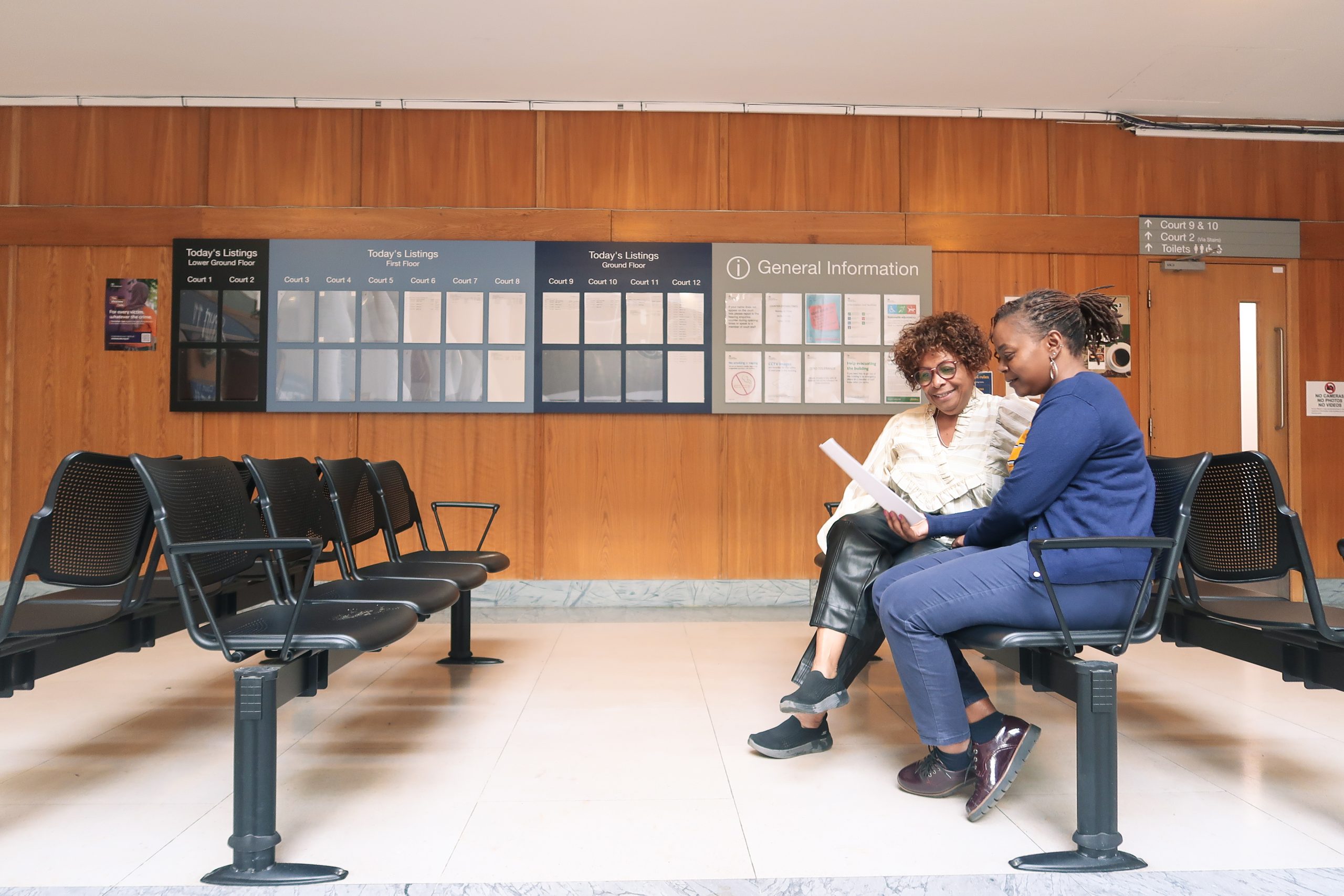More than one in five defendants at trials in the Magistrates’ Court had no lawyer, according to a groundbreaking mass court observation project which found defendants were left struggling to understand without legal help and often even the appropriate paperwork. CourtWatch London, organized by the charity Transform Justice, involved 82 volunteer members of the public visiting their local London magistrates courts and observing more than 1,100 hearings over a six month period ending last December.
The courtwatchers, who sat in on 165 hearings where a defendant was unrepresented (15% of the total number), reported that 21% of defendants involved in trials did not have a lawyer. There were many reports of unrepresented lawyers not receiving the papers for hearings in advance.
One of the main themes of the research was the extent to which the courtwatchers themselves struggled to understand the court system. The observations suggested defendants were ‘struggling too’, authors Fionnuala Ratcliffe and Penelope Gibbs noted. ‘People cannot have a fair trial without a clear understanding of what they are accused of, what is happening in court, and the implications of the court process,’ they said. ‘Our courtwatchers observed Magistrates’ court often falling short.’
 The study opened with a quote from justice minister Mike Freer asserting that ‘open justice’ was ‘a fundamental principal at the very heart of our justice system… justice must not only be done, but must be seen to be done’. Transform Justice reported that their volunteers were ‘severely constrained’ by a ‘a court process that has de-priotised public access’. The response from court staff to observers ‘ranged from assistance to puzzlement to hostility’.
The study opened with a quote from justice minister Mike Freer asserting that ‘open justice’ was ‘a fundamental principal at the very heart of our justice system… justice must not only be done, but must be seen to be done’. Transform Justice reported that their volunteers were ‘severely constrained’ by a ‘a court process that has de-priotised public access’. The response from court staff to observers ‘ranged from assistance to puzzlement to hostility’.
The experience of courtwatchers was that the main ‘open justice’ hurdle was an inability to hear what was actually going on in court. More than three-quarters of proceedings (77%) could not be heard properly from the public gallery which is often behind a perspex barrier and reliant upon functioning microphones in the courtroom being effective. ‘Audibility in the courtroom (or rather the lack of it) demonstrates the hierarchy of power and the semi-invisibility of those at the back of the court,’ the report noted.
‘The fundamental flaw in our court system highlighted by courtwatchers – that many defendants don’t know what’s happening in the court and so can’t meaningfully participate in the process – needs urgent action,’ Transform Justice argues. ‘We need simpler court proceedings so the process is intelligible to a lay person and legal aid available for a wider range of circumstances.’
Despite such reservations, observers reported that judgments of the courts were ‘overall fair, reasoned, and practical’; but observers were ‘shocked’ at the inefficiency of the courts and how the time of professionals was ‘wasted’.
Over one in five of the hearings involved a defendant who did not speak English as a first language. Despite defendants having a right to an interpreter if they can’t speak the language, in half of those cases (104) an interpreter was not arranged with many left struggling to understand what was happening. One courtwatcher observed ‘Clearly that defendant could not properly understand English (despite chief mag speaking loudly! LOL).’
Some observers were shocked by racial disparities in decision-making in a process where, on the basis of this exercise, almost one third of defendants are Black (30%) but only 14% of those sitting on the magistrates’ bench (and only 4% of District Judges). For example, one volunteer reported: ‘I spent all day in this room, three of the defendants were white, the others were Black. The latter were spoken to by the magistrates with disdain, I felt. None were offered support…. . The first White defendant was offered support for his problems. The lack of equality was disheartening and obviously unjust.’
There was concern about the treatment of defendants with obvious mental health problems. ‘Some defendants were visibly unwell; shaking, distressed, suffering, significant mental health conditions, or experiencing the effects of drug withdrawal,’ Ratclifffe and Gibbs noted; and added that courtwatchers were ‘alarmed’ when such distress was not acknowledged by the court and hearings proceeded with no support. One observer recorded: ‘This young woman could barely stand upon entering the dock. No apparent concern for her dignity, her hair was a mess and she was shaking uncontrollably initially… . Why is it tolerable for people to turn up in such distress and for that not to be addressed?’
Other observers were frustrated at the futility of fining people who had no money – one noted that a £20 a month fine for someone on universal credit was ‘a fortune’.
Courtwatchers were impressed by the conduct of some defence lawyers and alarmed at their indifference and lack of preparation of others (‘… duty solicitor didn’t seem to care – huffing and puffing about how he was getting late’). A number were struck by how ‘isolated or even ignored’ defendants were. Observers noted that the separation was exacerbated by the unnecessary overuse of the secure dock or glitchy videolinks with fixed cameras rendering defendants partially visible.
Courtwatchers talk of the ‘kindness’, ‘empathy’ and ‘patience’ on the part of some judges; but there were also reports of bad practice. One observer described one judge as ‘cold’. ‘Observing his cases this morning has been very challenging,’ they noted. ‘I wanted to remind him he’s dealing/working with human beings and needs to be more respectful and listen more.’







